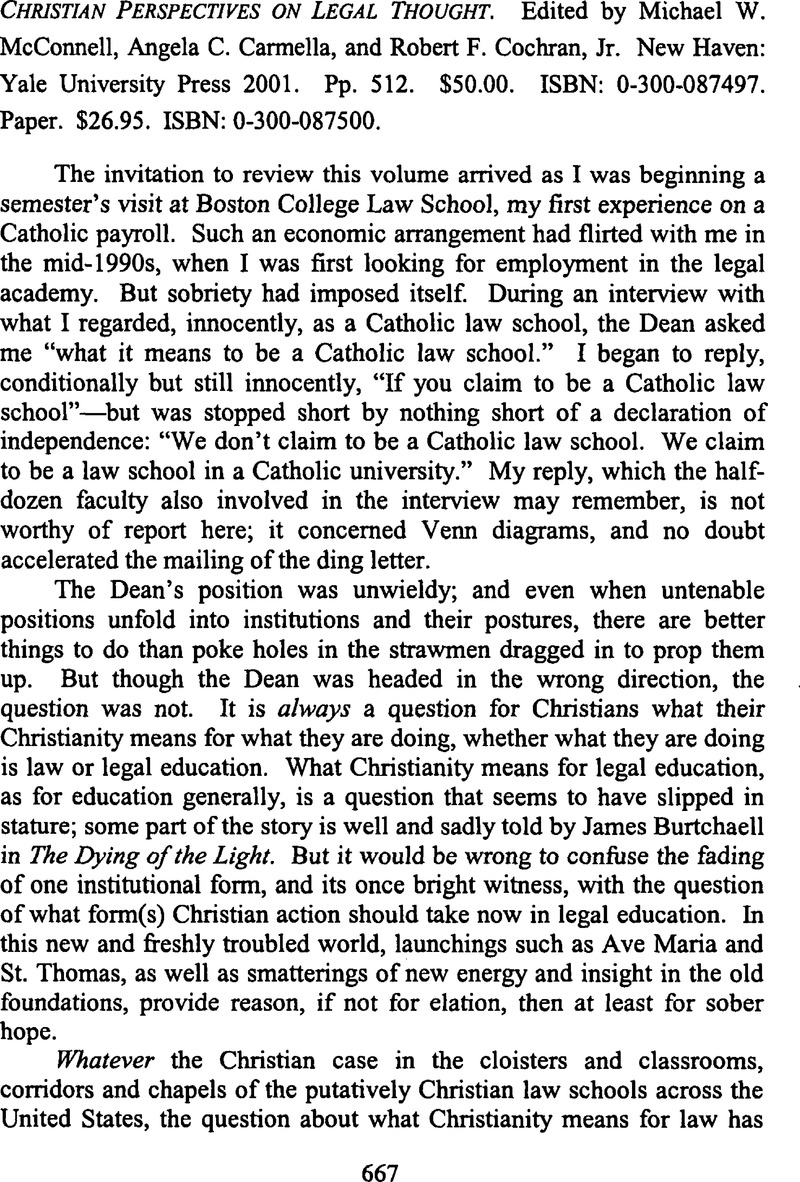No CrossRef data available.
Published online by Cambridge University Press: 24 April 2015

1. Niebuhr's fifth perspective, the “culturalist,” under which the law is understood to be consistent with Christian teaching, is not treated because “this perspective does not bring a specifically Christian critique to the law.” (260).
2. Sherry, Suzanna, The Sleep of Reason, 84 Geo. LJ. 453, 455 (1996)Google Scholar.
3. The “black box” phrase I learned from Bernard Lonergan, in his still-unpublished 1974 essay, Self-transcendence: Intellectual, Moral, Religious. (It is expected that the essay will be published in volume 14 of Collected Works of Bernard Lonergan.) Bruce Ackerman also uses the phrase (as Stephen Carter observes (41)), but unlike Lonergan, Ackerman does not undertake to open the black box and subject its deliverances to critical scrutiny with a view toward arriving at a shared epistemic stance. See Ackerman, Bruce, Social Justice in the Liberal State 281–282 (Yale U. Press 1980)Google Scholar.
4. “tu excitas, ut laudare te delectet, quia fecisti nos, ad te et inquietum est cor nostrum, donec requiescat in te.” “You have created us for You, O Lord, and our hearts are restless until they rest in You.” The Oxford Dictionary of Quotations 35 (Knowles, Elizabeth ed., 5th ed., Oxford U. Press 1999)Google Scholar.
5. Vining, Joseph, The Authoritative and the Authoritarian 201 (U. Chi. Press 1986)Google Scholar.
6. Lonergan, Bernard, Insight: A Study of Human Understanding 717 (Harper & Row 1978)Google Scholar.
7. Tracy, David, Plurality and Ambiguity: Hermeneutics. Religion, Hope 18 (U. Chi. Press 1987)Google Scholar.
8. Lonergan, Bernard, The Dimensions of Meaning, in Collected Works of Bernard Lonergan vol. 4, 245 (Crowe, Frederick E. & Doran, Robert M., eds., U. Toronto Press 1988)Google Scholar.
9. Smith, Steven D., Believing Like a Lawyer, 40 B.C. L. Rev. 1041, 1137 (1999)Google Scholar.
10. Lonergan, supra n. 6, at 210.